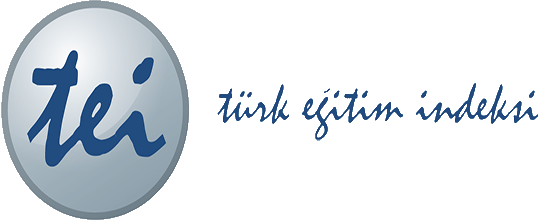THE CURRENT STATE AND SYSTEMIC DEVELOPMENT OF FORMS AND METHODS OF INTERACTION BETWEEN THE STATE AND CIVIL SOCIETY IN EUROPEAN UNION
DOI:
https://doi.org/10.32689/2617-9660-2018-1-1-102-109Keywords:
state authorities, third sector, representation of community interests, formation of public opinion, public institutions.Abstract
It is substantiated that the issue of representation is usually a serious problem for the third sector due to its diversity and dynamism, as well as the weak level of institutionalization. At the same time, the state needs clarity on the question of who and who they represent and which mandate they have on the other side of the negotiations. The parties should agree that no body or group of organizations can represent the full spectrum of interests of the non-governmental sector in its relations with the state. However, in the presence of recognized representative bodies of the third sector, they must, in their role of representatives, adhere to certain rules. At the request of the state regarding their opinion, they must react in a certain time. They should also show how they consult with their members how to ensure accountability and accurate representation of the views of stakeholders. Sometimes the government is interested in such an opinion of the representative body, which reflects not only the benefits of its members, but also the special interests of those who are not among its members. In such cases, at least neutrality and objectivity should be ensured. It is determined that often when dealing with issues of representation forget about grassroots organizations and informal group communities. It is very important to emphasize their role in the consultation process as well as the responsibility of umbrella organizations to consult such groups when forming a common opinion. From the state, the issue of representation is much easier to solve. However, as is often the case in countries where public institutions and administrative culture are weak or at the formative stage, the issue of representation is not satisfactory, even though this issue is extremely important for partners and is necessary to achieve good results. There are two main problems here. First, there are no clear, accessible and well-developed channels of interaction between non-governmental organizations and the state. Therefore, the government should be obliged under the agreement not only to specify its priorities and goals of cooperation, but also to create clear and accessible channels of interaction. Secondly, if the methods of interaction are not developed enough, to ensure the real representation of the interests of communities will be impossible.
References
Romanenko Y. A. Implementation of information integrated systems in the process of investigation of competition on the external market / Y. A. Romanenko, I. V. Chaplay // Науковий вісник Полісся. — 2017. — № 1 (9). — Ч. 1. — С. 128–133.
Даймар Лиив. Рекомендации по подготовке договоров о взаимодействии государства и гражданского общества. — Режим доступа : www. lawtrend.org/wp-content/.../03/ Rekomendatsii1.doc
Копенгагенські критерії членства в Європейському союзі (інформаційно-аналітична довідка). — Режим доступу: https://mfa.gov.ua/ua/page/ open/id/774
Проект Концепції взаємодії держави з громадянським суспільством // Сайт Міністерства юстиції України. — Режим доступу : http://www. minjust.gov.ua/0/33679
Про забезпечення участі громадськості у формуванні та реалізації державної політики : Постанова Кабінету Міністрів України від 3 листопада 2010 р. [Електронний ресурс]. — Режим доступу : http:// zakon.rada.gov.ua/laws/show/996- 2010-п
Взаємодія держави та інститутів громадянського суспільства : Роз’яснення Міністерства юстиції України від 3 лютого 2011 р. [Електронний ресурс]. — Режим доступу : http://zakon.rada.gov.ua/laws/show/n0018323-11
Про сприяння розвитку громадянського суспільства в Україні [Електронний ресурс]. — Режим доступу : http://zakon.rada.gov.ua/laws/ show/68/2016
Модернізація України — наш стра- тегічний вибір: Щорічне послання Президента України до Верховної Ради України. — К. : ІНСД, 2011. — 432 с.
Череватюк В. Б. Громадянське су- спільство як модель взаємовідно- син людини та держави: від історії до сучасності / В. Б. Череватюк, Ю. Є. Олексієнко // Юрид. вісн. Повітряне і космічне право. — 2014. — № 2. — С. 35–40. — Режим доступу: http://nbuv.gov.ua/UJRN/ Npnau_2014_2_9










